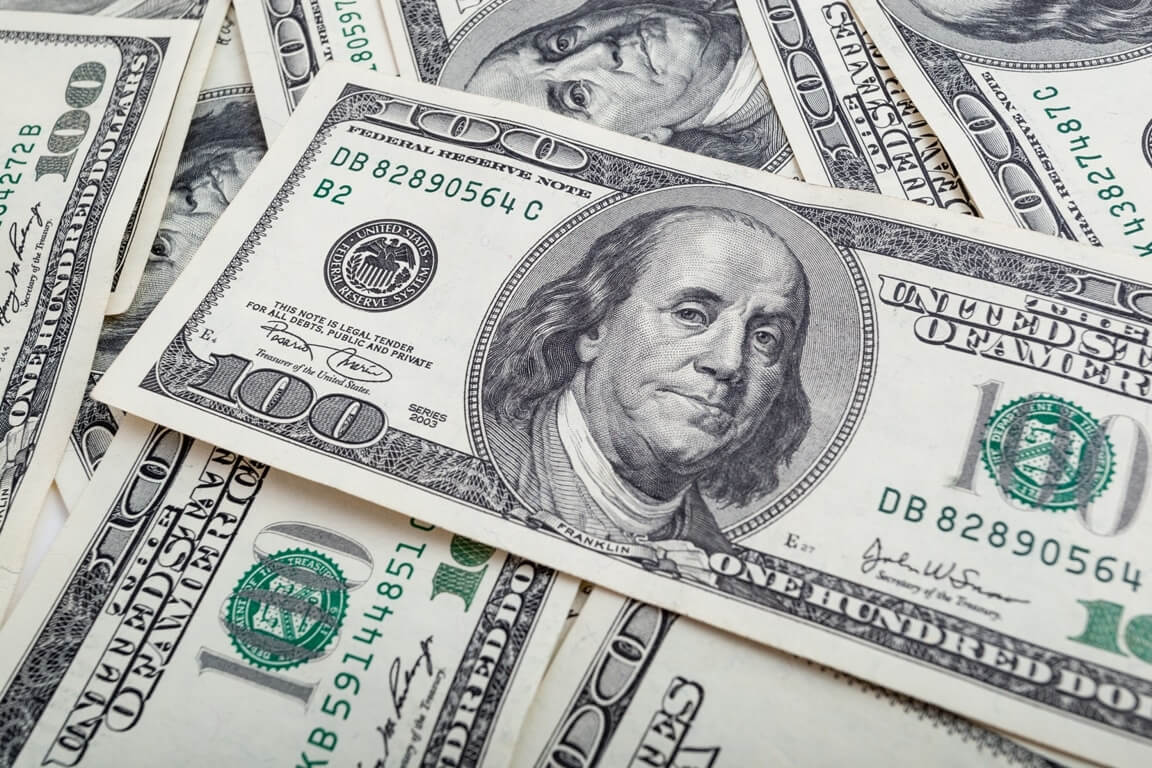
U.S. dollar declines ahead of Fed meeting. What about Euro?
The U.S. dollar dropped further from the recent 20-year highs on Wednesday. Investors are waiting for the U.S. Federal Reserve policy meeting. They expect the central bank to hike rates by another 75 basis points to tame surging inflation. Meanwhile, moves in forex markets were modest as traders watched out for the policy announcement at 1800 GMT.
Currency markets are betting that the Federal Reserve will increase rates by 75 basis points (bps), but there’s still an outside chance of a larger 100 bps hike. Investors think the agency will take the rate to as high as 3.4% by year-end to help bring inflation back to target. Bets on oversized rate raises helped boost the dollar index to its highest level in almost 20 years. It hit 109.29 against a basket of six currencies earlier this month. Overall, the greenback soared higher by 2.1% in July. However, at 1055 GMT, the dollar index tumbled down by 0.2% to 106.93.
Simon Harvey, the head of FX analysis at Monex Europe, stated that FX markets were taking a bit off the table before tonight’s Federal Reserve meeting. He also added that barring any imminent headlines on European energy or political developments, traders will likely see very limited ranges.
How is the Euro trading now?
On Wednesday, the Euro soared by 0.33% to $1.0149. Despite that, the common currency failed to recoup much of Tuesday’s 1.0% losses, its biggest plunge in over two weeks. Fears of a Eurozone recession escalated after Russia cut gas supplies to Europe once more through the Nord Stream 1 pipeline. This news had initially sent the Euro in the red, but the currency managed to rebound today.
According to analysts, it remains premature to short the greenback considering the gas situation in Europe, as well as rising yields in the European periphery, particularly Italy.
Italy’s yields jumped further on Wednesday. Rating agency S&P Global recently revised its outlook on Italy’s rating to stable from positive. That also pushed the closely watched spread between Italian and German 10-year yields to as wide as 250 bps.
Vincent Manuel, the chief investment officer at Indosuez Wealth Management, noted that most factors are still in favor of the U.S. dollar. As such, he cited the macro backdrop between the United States and the euro area, the European energy crisis, peripheral spread widening, and the relative pace of monetary policy normalization.
Meanwhile, the Australian dollar climbed up by 0.12% to $0.69455 today. Australian inflation skyrocketed to a 21-year high in the last quarter, but the figure was not as high as some traders feared. Thus, some rate increase bets were pulled back. Investors are now pricing in an around 86% chance of a 50-bps rate rise by the RBA next week, as well as a 14% chance of a more modest 25-bps hike.
Against the Japanese Yen, the dollar plummeted by 0.2% to 136.69. The greenback also tumbled down by 0.2% at $0.9612 against the safe-haven Swiss franc on Wednesday.
What about the EM currencies?
Most Asian currencies decreased on Wednesday as traders stayed cautious ahead of a key Fed decision. The latter will likely determine the path of policy tightening for the region’s central banks.
The South Korean won is Asia’s worst-performing EM currency so far this year. It shaved off 0.4% on Wednesday. However, South Korea’s two top officials shrugged off the currency’s recent drop to a 13-year low. They also dismissed proposals by some lawmakers that the country needed more aggressive measures to support the won. On the other hand, a Bank of Korea board member stated that the central bank needed to keep its current rate-raising stance for the time being.
Indonesia’s rupiah, the Philippine peso, and the Thai baht plummeted between 0.2% and 0.6%, despite a softer greenback. Investors will focus on the press conference by Fed Chair Jerome Powell for some hints on future rises, especially amid concerns that aggressive tightening could tip the economy into a recession.
Alvin Tan, the head of Asia FX strategy at RBC Capital Markets, stated that market reaction could be quite muted if traders get the 75-bp hike as they widely expect and don’t get strong forward guidance. Tan added that if the Federal Reserve doesn’t pre-commit to another 75-bp increase in September, Asian central banks won’t likely be put in a position to react very quickly.




